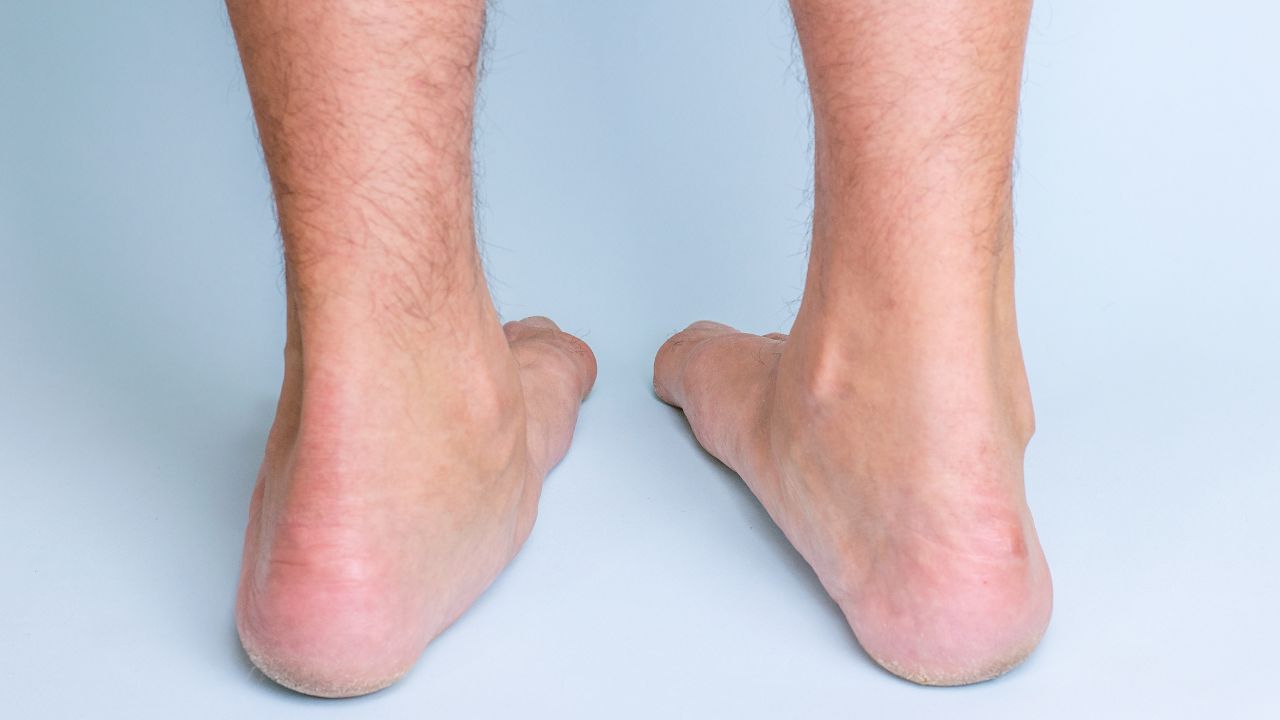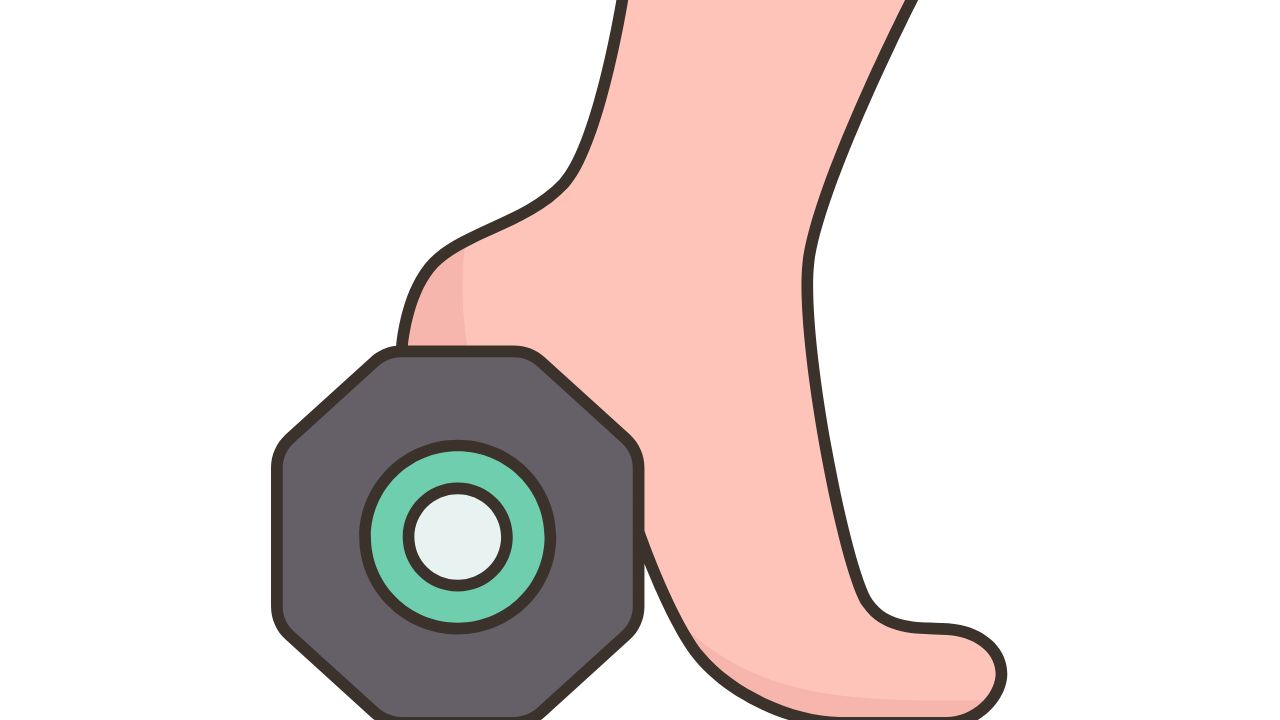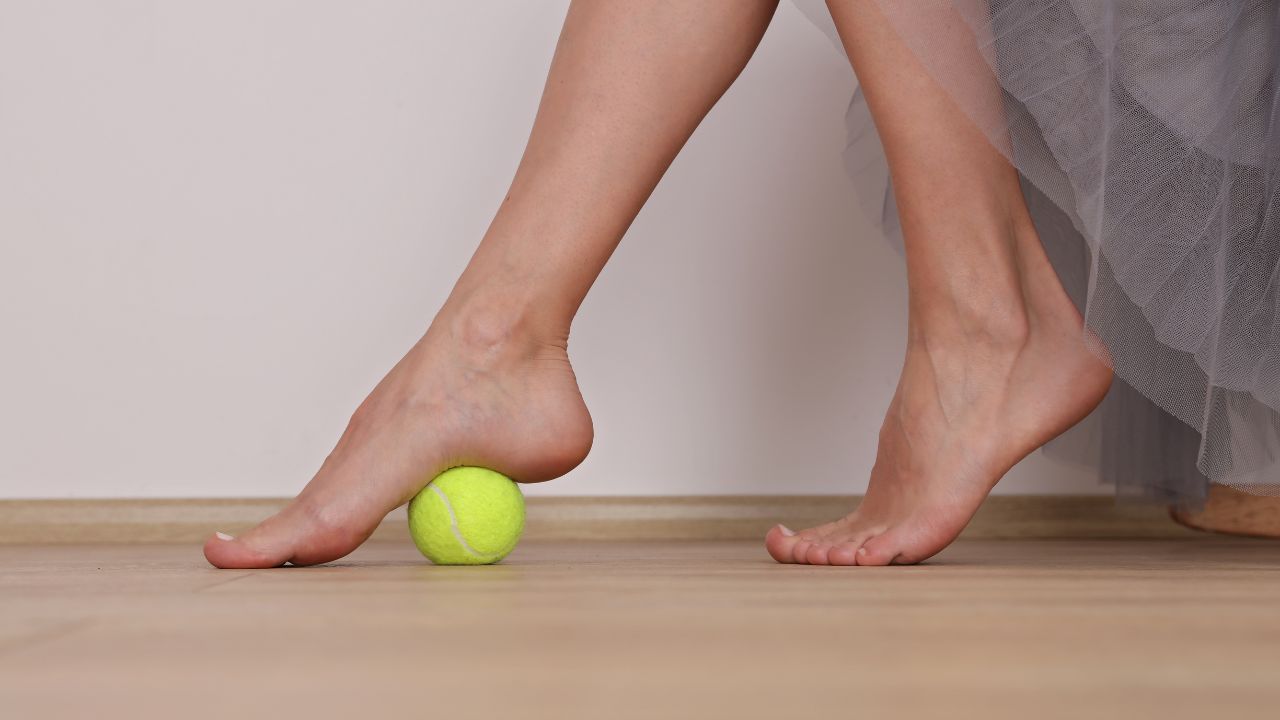Don’t fix Overpronation. Do THIS instead.
Apr 25, 2025
Do you overpronate your feet more than most people? Are you jealous of those sexy arches that all your friends have?
Have you went down the rabbit hole of blaming your flat feet on everything from foot discomfort to hip or low back pain?
Well dear flat-footer, what if I told you that your flat feet are not a problem at all. That the actual problem is you trying to “fix” something that isn’t broken.
Science is yet to show any connection between pain or poor performance and overpronation. In fact, it shows the opposite. People with flat feet tend to have less pain than their high arch companions.
In this article, I’ll dive deeper into what the data shows about overpronation. I’ll explain why you shouldn’t be wasting time on exercises to fix this benign foot posture and what you should be doing instead with your valuable time.
What is Overpronation?
Overpronation is another term for flat feet. This is a common type of foot posture. Some people have more supinated feet and higher arches. Some have neutral foot postures and others have more pronated foot postures, aka flat feet.

How much pronation your feet have is similar to other postural dispositions in the body. Some people have more of an anterior pelvic tilt, while others have more of a neutral or posterior pelvic tilt.
Some people also have more curvatures in their spine, asymmetry in limb length and other types of perceived postural distortions. Although many health professionals argue that these postures are “dysfunctional,” studies consistently fail to find any connection between posture and pain.
Like this one that failed to find a connection between low back pain and postural issues like lumbar lordosis, pelvic tilt and leg length discrepancy. Or this one that could not not demonstrate any difference in the degree of lordosis among study participants with or without back pain.

The same is true for overpronation of the feet. In a 2014 study, researchers found that there was no increased likelihood for injury from running in people with overpronated feet. In fact, those with flat feet were actually less likely to get injured.
Correcting Overpronation, a Case Study
I first started getting into movement around 2014. This was a ripe time for fitness influencers to make a name for themselves on platforms like YouTube and Instagram.
Quick and simple fixes tend to go viral much more often than more nuanced explanations. The “fix your posture, fix your pain” theory is easy to understand and feels right.

I was young and impressionable and went all in. I blamed my hip pain on all the usual suspects – posture, muscle imbalance, weakness, etc. I went to workshops all around the country to learn from all the various fitness gurus.
At one of these workshops, I met another guy just like me. He was around the same age (early 20s) and was dealing with some pain in his body too. For him though, it was his feet that were the problem.
His feet were overpronated. To get out of pain, he needed to fix his flat feet. This was the message being pushed on us at this workshop we were both attending so we both believed it to be true.

At a certain point in the workshop, we all took our socks off and did some foot exercises. My new flat-footed friend looked at my feet and yelled, “Dude, look at your arches man! That’s awesome.”
He was talking to me. I had no idea what he was talking about. I looked down at my feet and lo and behold, I had high arches. This is something I never knew or thought about until that moment. I’ll take it, I thought.

But then in the next segment of the workshop, we worked on squatting and my flat-footed friend had the best squats in the entire workshop. Even better than the instructors!
He also had an amazing hip hinge and had all around great flexibility. He was able to do over 10 perfect pull ups, did pushups with great form and just moved well generally.
But he was fixated on his flat feet. He thought it caused all the problems he experienced in his body. Like his hip tension, low back pain and whatever other aches he occasionally noticed in his body.

This guy did just about every movement we did in that workshop better than me but he still thought he was inferior to me because I had higher arches than he did.
I did no work for these arches. I am blessed in this regard, I guess. But I also couldn’t do any of the stuff that he did. It’s been about 8 years since that workshop and I’m still working on accessing some of the movements my friend did with ease back then.
Overpronation Exercises Don’t Work
Since that workshop, I have learned a lot about pain. Especially chronic pain that is not associated with any obvious injury or accident.

It is one of those areas in life that you cannot know with absolute certainty. Like the mystery of the universe or what happens after life. The ones that think they have figured it out are the ones you should be the most cautious around.
Pain is complex. It’s a product of many different factors including our genetics, emotions, psychology, experiences and yes, movement. But movement is just one out of many considerations.
People overestimate how much they can influence how their bodies feel through physical intervention and underestimate psychological intervention.
My friend from that workshop found the one postural issue in his body to blame all his aches and pains on. He overlooked all the other incredible stuff he was doing with his body and obsessed over his flat feet.
He did all the corrective exercises for his feet that he was supposed to but still felt the same aches and pains in his body years later.
He is still a good friend of mine and when we get together and do some movement, I always tell him how impressed I am with his skills.

He thanks me but also tells me he won’t be satisfied until he gets higher arches. Only then, will his back feel better. Or his hip. Or whatever else came up for him that week.
Overpronate and Move on
Don’t be like my friend. Focus on the things you can control, like getting better at moving your body. And learning how chronic pain truly works.
For most of you, your aches and pains are not due to overpronation. Maybe it is a small factor but spending years focusing on something you have little control over will not get you very far.
As the saying goes, “whatever you try to control will end up controlling you.” I never obsessed over my foot posture, but I did obsess over other areas of my body like my hips, shoulders, neck and spine.
Once I let go of the idea that the discomfort I experienced in my body was due to my posture, I was able to shift my focus on healthier goals – like moving better. An interesting thing happens when you make this shift.
Your body actually starts feeling better too because you let go of that desperate need to fix something. So, try it out and remember to have fun. Movement should be enjoyable, not overly-medicalized and prescriptive.




